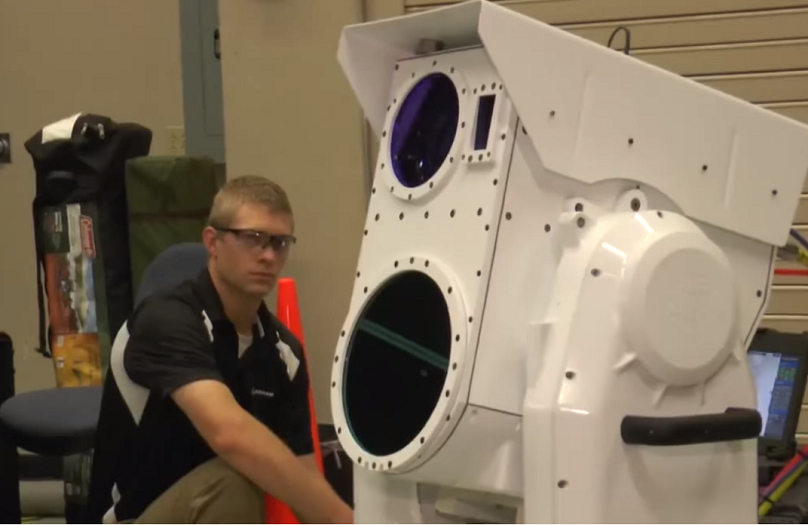This post is also available in:
 עברית (Hebrew)
עברית (Hebrew)
It seems hard to imagine the future battlefield without any UAVs flying around. Drones have become such an integral part of warfare that it would seem inevitable to be in the battlefield without a friendly or enemy UAV flying overhead. In the case of the latter, military forces everywhere have been experimenting and testing new weapons to combat pesky, hostile drones, and the United States Marines are no exception.
The Marines have been experimenting with a new laser weapon system meant to scorch drones out of the sky. Developed by Boeing, the Compact Laser Weapon System (CLaWS) is meant to neutralize small UAVs. CLaWS is a vehicle-mounted laser system allowing for easy portability and defense against small surveillance or even suicide drones.
The laser system works by directing energy at a specific point on a UAV. Within several seconds the UAV will ignite, with the intention of using the laser to severely damage the UAV’s aerodynamic structure, fuel tank, or explosive payload.
Popularmechanics.com mentions that CLaWS is a fiber laser, meaning that the lasers use optical fibers covered in a special material. The site further mentions that fiber lasers are more reliable when transported around and have a high beam quality.
CLaWS is available in several different versions. The system is available either in two, five, or ten kilowatts.
It is not completely known which version the Marines have been testing. However, the Marines have already received delivery of the 2 kilowatt version last summer, and should have fielded the 5 kilowatt versions by this summer.
With the rising threat of hostile UAVs, it is only natural that a counter to this issue would eventually rise. It would seem that the future battlefield will almost definitely utilize lasers in the count-UAV effort.


























